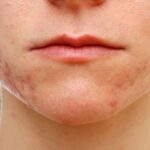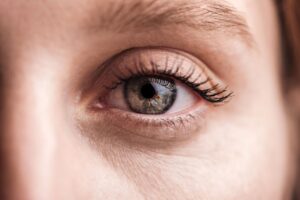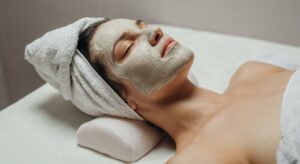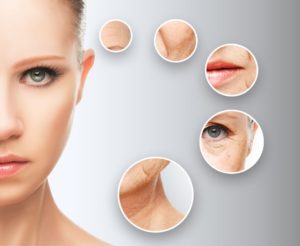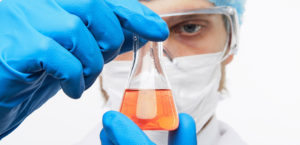Too much sugar in our body is known to cause health problems such as diabetes, obesity, and heart disease. But, did you know that it can also affect your skin?
We all know that the major contributors to one’s sugar intake are soft drinks and sugary snacks. You might think that drinking a glass of wine or even a glass of that store-bought fruit juice is healthy but be careful! There are still hidden amounts of sugar with these healthy and nutritious foods. An example to explain further is did you know that 250ml of white wine contains 30g of sugar.
There is a limit when it comes to our sugar intake. For men, the maximum sugar they should consume is 36g (grams) or 9tsps (teaspoons), and for women, it should be 25g (grams) or 6tsps (teaspoons). Consuming sugar beyond these limits can bring lots of negative health benefits such as blood sugar problems, increased risk of heart disease, and many more.
Let’s admit it. It’s difficult to attain the urge to cease consuming sugary foods. Yet acknowledging more about how it influences your skin may finally give you the encouragement you need to end consuming lots of sugar for good.
Glycation
Glycation is a typical chemical reaction of our body which arises when the volume of sugar in the bloodstream is higher than what our insulin can manage. Glucose, fructose, and their derivatives are the common sugars that are involved in the glycation process. Glycation is also the biomarker of diabetes and is included in several illnesses and aging.
Advanced glycation end products (AGEs) are produced from the glycation process. AGEs are damaging compounds that are created when protein or fat is combined with sugar in the bloodstream. The human body does will generate antibodies that will induce inflammation in the skin since it does not acknowledge AGEs as normal. When formed, AGEs tend to attack our dermal collagen and elastin, making our skin look dull, dry, and rough.
Linked to Acne
Studies show that too much sugar consumption has been associated with a higher risk of developing acne. The development of androgen secretion, oil production, and inflammation, which all play a role with the development of acne, increases when sugary foods are consumed since this type of foods instantly boost blood sugar and insulin levels. Furthermore, consuming foods with low-glycemic such as green vegetables, chickpeas, and raw carrots, are best to consume since they are linked to a lower risk of acne, whereas high-glycemic foods are linked to a higher risk.
Accelerates the Skin Aging Process
Wrinkles are a natural indication of getting older. Eventually, they show up, despite your health. That being said, poor dietary choices may intensify wrinkles and boost the aging process of the skin.
AGEs, formed by the glycation process, damages the collagen. The collagen is responsible for keeping the elasticity of the skin and keeping the skin’s youthful appearance. If the collagen is damaged, the skin loses its firmness and will begin to sag, which aids in the formation of wrinkles and fine lines.
Increases Cellular Aging
Telomere, a compound structure found at the end of a chromosome, acts as a protective cap which prevents degradation or fusion of chromosomes. As you age up, the telomeres eventually shrink, which leads cells to mature and breakdown. Though telomeric shortening is a natural part of aging, unhealthful life choices can accelerate the cycle. High sugar intake has been proven to stimulate telomere shortening, which enhances cellular aging.
Ways to Reduce Your Sugar Intake
Sugar can be difficult to avoid considering it’s just about everywhere and mostly hidden in foods. Excessive sugar intake brings lots of negative health effects. Thankfully, consuming whole, unprocessed foods will naturally reduce the amount of sugar you intake.
Here are several pieces of advice on how to lessen the consumption of sugar:
- Avoid sweets like chocolates, candies, cake, etc.
- Drink water or unsweetened seltzers instead of sodas, energy drinks, and juices.
- Replace sweet salad dressings, such as honey mustard, with olive oils and vinegar.
- Inspect the labels of the food you eat and read the nutrition facts.
- Keep a food diary to track the foods you eat and to become more aware of the main sources of sugar included in your diet.
- Eat cereals, granolas, and granola bars which only have under 4g (grams) of sugar per serving.
- Devour whole fruit rather than sweetened fruit smoothies.
- Go for unsweetened yogurt and add fresh fruits or frozen berries to sweeten your yogurt rather than buying flavored, sugar-loaded yogurt.
- Prepare healthy and delicious meals at home and avoid buying foods and drinks which contain high added sugar.
- Choose black coffee, optionally sweetened with Stevia for a zero-calorie, natural sweetener.
- Replace sweet spreads, like Nutella, with natural nut butters.
Last but not the least, the best way to avoid excessive sugar intake is to not keep sugar in the house. If you keep high-sugar foods in your house, you’re quite willing to binge them. Research indicates that the circadian rhythm intensifies the desire for sugary and starchy food in the evenings.
*Information in this article is not medical advice and may not be factually accurate. It is intended for entertainment purposes only. Consult with a physician before attempting any tips in this blog post and to get the most up to date factual data about any procedure or treatment.




